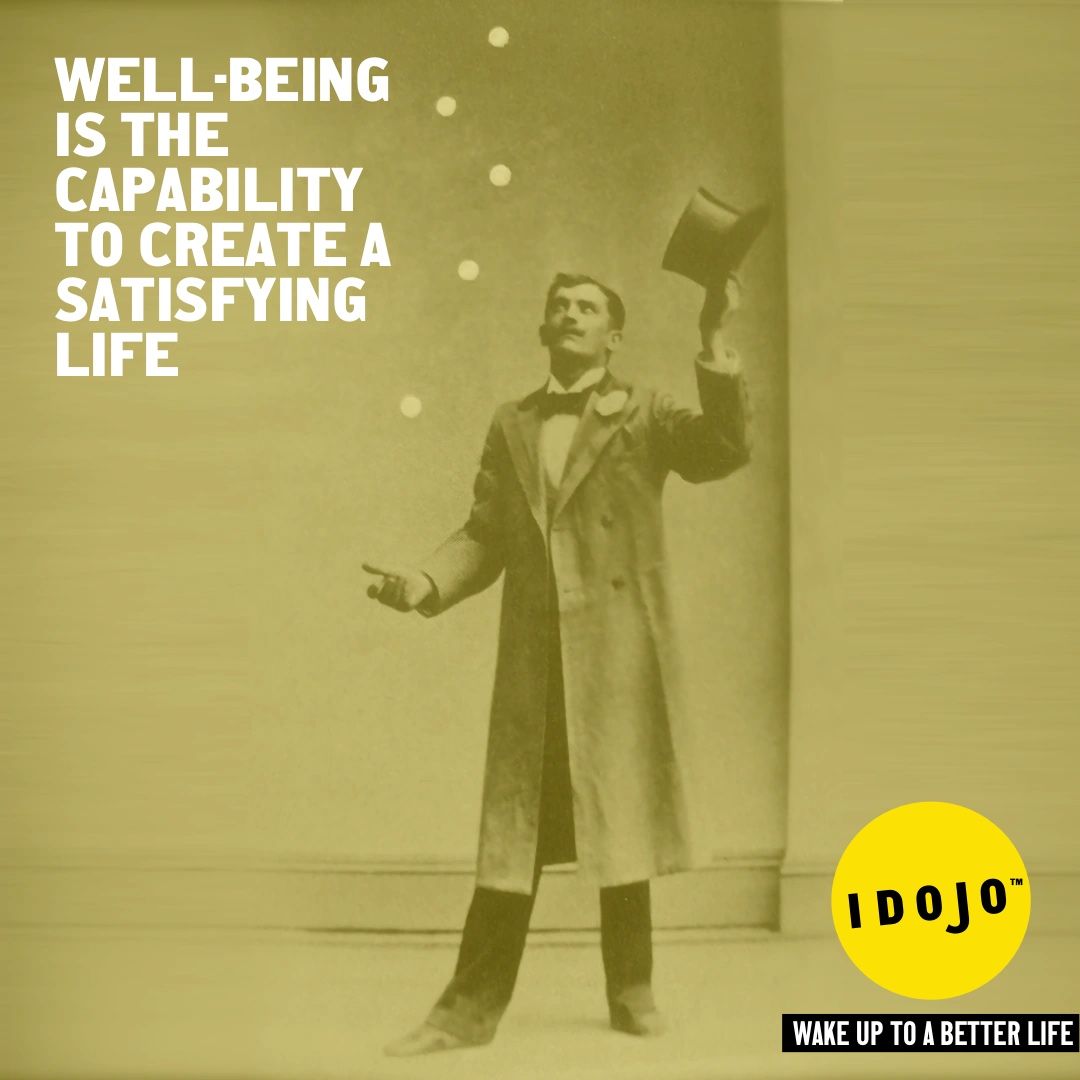
Well-being is all the time
Well-being is for everyone
Well-being has become a topic of discussion that has gained increasing visibility over the last decade. There is no agreed-upon definition of well-being, but the common denominator seems to be simply "feeling good". And everyone wants that, right? If there was ever a universal concern, then its well-being.
Traditional approaches to well-being
The most common approach to supporting well-being is based on "aggregate" models of well-being. The question that drives these is, "what are the common factors that contribute to the well-being of most people, most of the time"? The British think-tank, the New Economics Foundation, has developed a "5 ways" recipe for well-being. This is based on social relationships, physical activity, awareness, learning, and giving. Other models focus on a finite set of "domains" of well-being such as physical, mental, social, financial or spiritual.
The theory of these traditional approaches is the top-down population health orientation. They presume that if people are exposed to "5 of this and that" promotions of well-being, then everyone will become healthy. But as the "5 fruit and vegetables" promotions have shown in the past, these only have limited effectiveness. Changing behaviour is really hard. We need a new way of thinking about well-being.
The "bottom-up" approach to well-being
Top-down approaches to behaviour change rely on nudging and promotion, where the health promoter is active, and people are relatively passive. In contrast, bottom-up approaches make people the active agent in the process of their own well-being. The focus is on helping individuals develop responsibility and the capability to manage their well-being.
Another definition of well-being
My definition of well-being is a little different from the traditional perspective. It is prescriptive rather than simply descriptive. This also helpfully makes it more actionable
I define well-being as comprising two elements;
1. knowing what is important to you
2. your capability to connect to this
What is important
"What is important" (to you at the moment) is an omnipresent and always-relevant question. I call it the "guiding line" of our life. I believe it's the most important question to ask at any time. Inevitably there'll be more than one answer to that question, and each answer belongs to you.
This question has two features that are unique to this definition of well-being. Firstly it doesn't stipulate what well-being means to you. It puts the authority to define what is important at the moment in our own hands. Secondly, because it belongs to us, it provides not only a sense of meaning and direction but also the best available source of motivational energy to realise it. Bringing more of what is important to us into our life usually requires us to change our behaviour, and that's not easy. Trying to do this without this "fuel" leaves us pushing our car rather than driving it.
Our agency
Immediately following the question of what is important is a question of agency. Who is going to take responsibility for this? If it's to be, it's up to me. In The 6 laws of a better life, this is called the "Law of your". Agency, or what I call "self authorship", is excluded from common definitions of well-being, but well-being isn't possible without a sense of control of our life.
Our capability
The final question is, how will I bring what is important to me into my world, or my experience? The answer is "my capability". Capability is the "ableness to do". I wrote about this recently in Paying for the art of life. Capability is a muscle that, with practice, can skillfully "lift" whatever is important to you in your life.

Well-being is now
A bottom-up approach to well-being focuses on developing our capability to bring what is important to us into our life at any moment. It contrasts with the top-down "y'all" formula to "connect sometime" or "learn sometime" (or some other 5-thing). Instead, it is a self- and moment-centric way of looking at well-being. It shifts the focus from a blanket approach to (i) the individual (that's you!), and (ii) what is important, (iii) now.
It is also fundamentally self-affirming to recognise that we are each responsible for our own lives. If we want a better life, we need to stand for it, and we can. To shift from an orientation of life happening to us, to life happening through us. Looking at well-being in this way is inspirational. It puts each of us at the centre of our life and affirms our potential to build a life that provides a satisfying sense of well-being.
A better life Newsletter
Build a better life in just 10 minutes a week. Join hundreds of other subscribers learning from firsthand experiments, and actionable advice every week.






